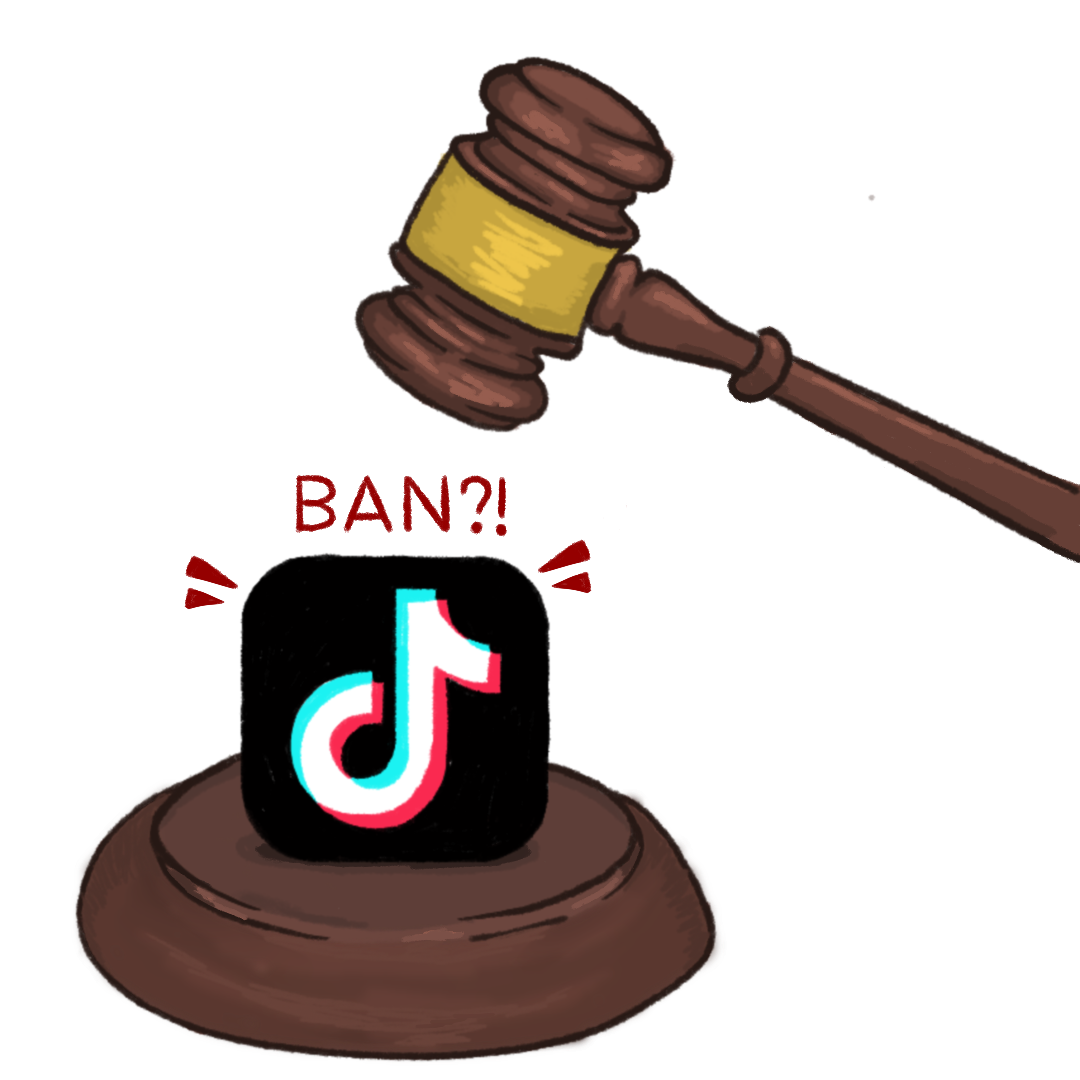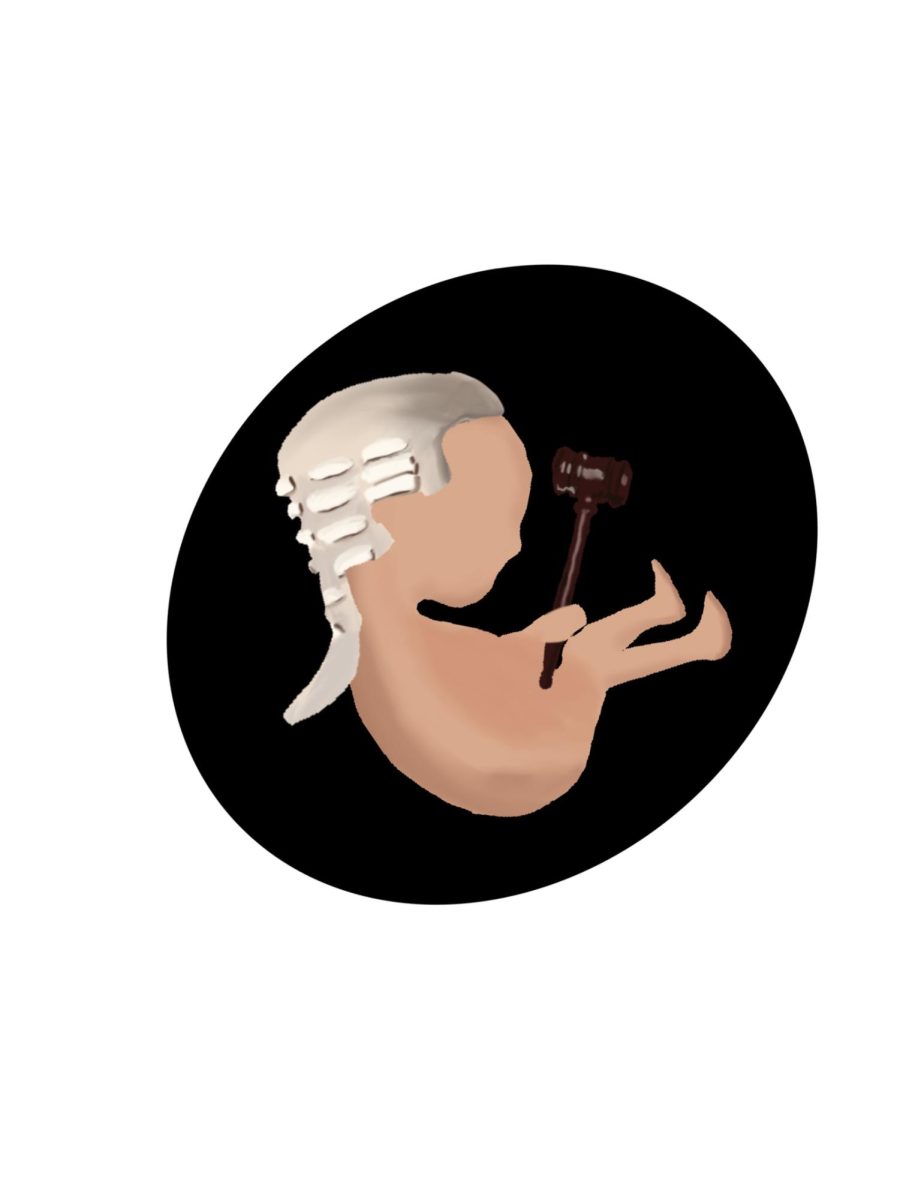“Congress shall make no law respecting an establishment of religion, or prohibiting the exercise thereof; or abridging the freedom of speech, or of the press; or the right of people peaceably to assemble, and to petition the Government for a redress of grievances.”
This is the First Amendment written in the Bill of Rights, a document that outlines the freedoms our country so proudly celebrates. America takes pride in being a place where its citizens can freely speak their minds, but lately, certain examples of this freedom are being met with anger and hostility. Throughout the beginning of the decade, individuals nationwide have been taking to social media and the streets to voice various grievances with our government, and the government’s responses have grown increasingly militant.
Despite being an app flooded with dance trends, funny videos and various product reviews, TikTok is no stranger to radical political conversations. This was evident in 2020 when the murder of George Floyd sparked videos spanning discussions of police brutality to imploring individuals to educate themselves on the history and current standings of race relations in America, and when the Presidential election took place the following November.
Lately, conversations like this have crept back into the TikTok algorithm, except now they are discussing events in the Middle East and the United States’ role in the region. What is being discussed not only on TikTok, but across social media, is conflicting with what the government tells us, and they hate that such conversations are out of their control. Due to the prevalence of the internet and social media, now more than ever we are able to see the truth of the country’s political and military actions with our own eyes. Apps like TikTok are then used to have conversations deconstructing and disputing what the Government tries to feed us, so it makes sense that they want to ban it.
In early March, The House passed a bill that could ban TikTok if the app’s China-based parent company, Bytedance, did not sell it. This past Saturday, after a bipartisan vote of 360-58, this legislation moved frighteningly closer to becoming a reality. The bill in its current state, if signed, would give TikTok 270 days to find a new owner or risk being banned nationwide.
The government can complain all they want about how TikTok is a matter of national security, or how it is ruining the minds of young people, but the real reason is plain and simple: suppression. By forcing Bytedance to sell TikTok to a preferably American owner, or banning the app altogether, congress would be censoring the voices of dissent that have become so prevalent recently. This sets an ominous precedent in terms of freedom of speech, especially on social media — one where the Government displays how it can effectively censor or silence conversations that oppose its propaganda machine.
Not only do citizens express their beliefs and grievances on social media, but they do so on the streets as well. The power of protests has been prevalent throughout our country’s history, and during the aforementioned summer of 2020, several protests took place which sparked a flame that has only continued to grow as the decade progresses. For instance, there was also a spike in pro-choice protests following the Supreme Court’s overturning of Roe V. Wade, the law that stated a woman’s right to have an abortion was protected by the Constitution. Now, the country has seen six months’ worth of protests sparked by the ongoing events in Palestine.
Mass protests have been the driving force of political change for decades, but now that may be in danger, too. On April 15, the Supreme Court announced that it would not hear Mckesson v. Doe, effectively leaving in place a lower court decision that puts the right to organize mass protests in jeopardy in the states of Louisiana, Mississippi and Texas. This move by the lower courts is an attempt to strip protesters of their empowerment and scare them into inaction. If passed, this would be an alarmingly casual infringement on our First Amendment right.
However, Justice Sonia Sotomayor assured in a statement that the Supreme Court’s decision not to hear this case was not absolute. She explained how the ruling in Counterman v. Colorado, a First Amendment case that the high court heard last term, must be considered as Mckesson continues to move through the lower courts. Sotomayor implies that if the lower courts do not reverse Mckesson after Counterman is taken into account, then the Supreme Court might become involved.
The role of courts in our country is to uphold and abide by the rights that are ingrained into America and all of its citizens. A lower court attempting to pass a law that would infringe on such rights is reprehensible, and it is imperative that they do their duty and reverse this unconstitutional legislation. If not, as the highest court in our nation, the Supreme Court must step in and right this wrong so that individuals may continue to freely practice their right to protest without the worry of any ban or law that prevents them from doing so.
In writing the First Amendment, the founding fathers deemed it our right as citizens to voice our beliefs and protest injustices that we are called to oppose. However, now various governmental bodies throughout the country — whether it be lower courts or Congress itself — are taking it upon themselves to decide who fits the bill. By attempting to censor or ban citizens from expressing their rights as they are written in the constitution, lawmakers are making it clear that voices of dissent are not who they want to fully exercise their rights to free speech or assembly. Despite this, from individuals sharing crucial news on TikTok to the students protesting on college campuses nationwide, those who are passionate about social change refuse to back down in the face of threats, bans and arrests. Eventually, the Government will be forced to realize that its power pales in comparison to the will of the people, and that their strength stands the test of any legislation that may be passed to stop them.













